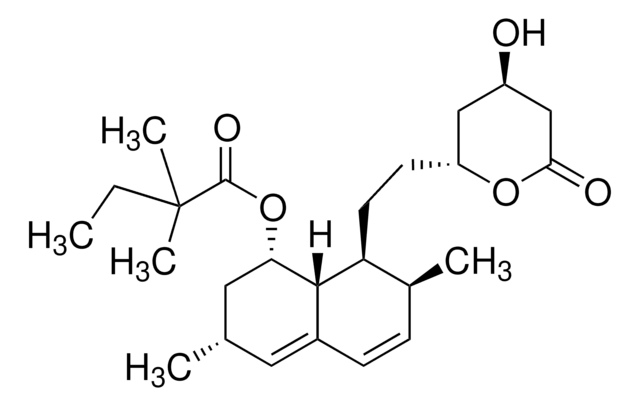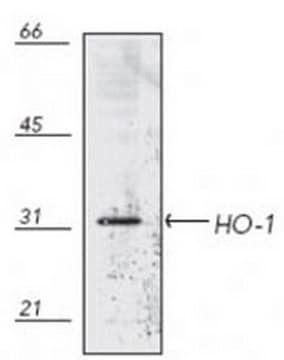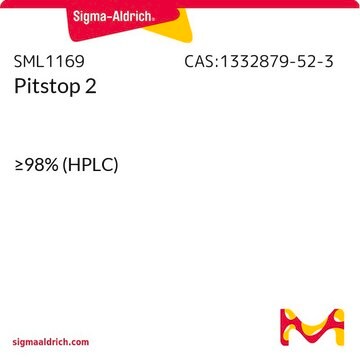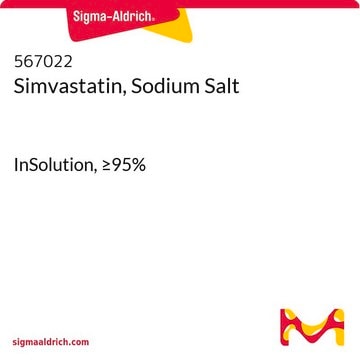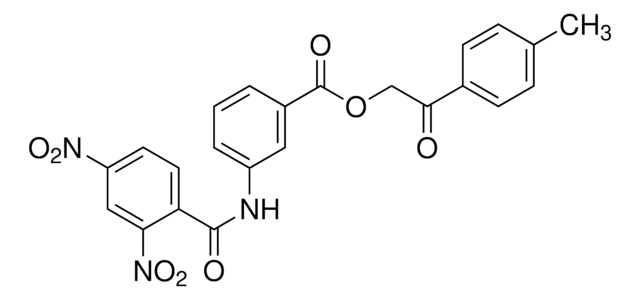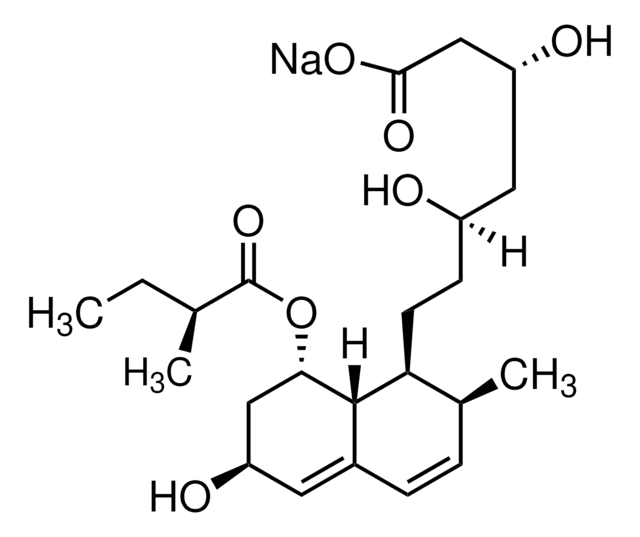567020
Simvastatin
≥98% (HPLC), solid, HMG-CoA reductase inhibitor, Calbiochem®
Synonym(s):
Simvastatin, MK-733, L-Type Calcium Channel Blocker VI
About This Item
Recommended Products
Product Name
Simvastatin, A lipophilic 3-hydroxy-3-methylglutaryl coenzyme A (HMG-CoA) reductase inhibitor that blocks Ras function through inhibition of farnesylation.
Quality Level
description
Merck USA index - 14, 8539
Assay
≥98% (HPLC)
form
solid
manufacturer/tradename
Calbiochem®
storage condition
OK to freeze
color
off-white
cation traces
heavy metals: ≤20 ppm
heavy metals: <20 ppm
shipped in
ambient
storage temp.
2-8°C
SMILES string
O1[C@@H](C[C@H](CC1=O)O)CC[C@@H]2[C@H]3[C@H](C[C@H](C=C3C=C[C@@H]2C)C)OC(=O)C(CC)(C)C
InChI
1S/C25H38O5/c1-6-25(4,5)24(28)30-21-12-15(2)11-17-8-7-16(3)20(23(17)21)10-9-19-13-18(26)14-22(27)29-19/h7-8,11,15-16,18-21,23,26H,6,9-10,12-14H2,1-5H3/t15-,16-,18+,19+,20-,21-,23-/m0/s1
InChI key
RYMZZMVNJRMUDD-HGQWONQESA-N
General description
Biochem/physiol Actions
farnesylation
Warning
Preparation Note
Reconstitution
Other Notes
Clutterbuck, R.D., et al. 1998. Br. J. Haematol. 102, 522.
Yokoyama, K., et al. 1998. Mol. Biochem. Parasitol. 94, 87.
Negre-Aminou, P., et al. 1997. Biochim. Biophys. Acta 1345, 259.
Vrtovsnik, F., et al. 1997. Kidney Int. 52, 1016.
Keyomarsi, K., et al. 1991. Cancer Res.51, 3602.
Legal Information
Signal Word
Warning
Hazard Statements
Precautionary Statements
Hazard Classifications
Repr. 2
Storage Class Code
11 - Combustible Solids
WGK
WGK 3
Flash Point(F)
Not applicable
Flash Point(C)
Not applicable
Certificates of Analysis (COA)
Search for Certificates of Analysis (COA) by entering the products Lot/Batch Number. Lot and Batch Numbers can be found on a product’s label following the words ‘Lot’ or ‘Batch’.
Already Own This Product?
Find documentation for the products that you have recently purchased in the Document Library.
Customers Also Viewed
Our team of scientists has experience in all areas of research including Life Science, Material Science, Chemical Synthesis, Chromatography, Analytical and many others.
Contact Technical Service